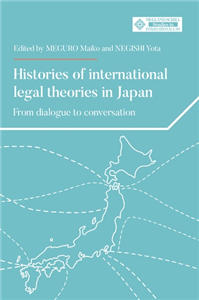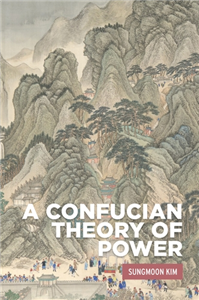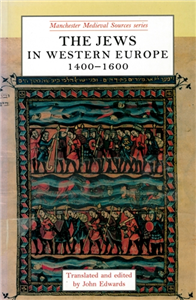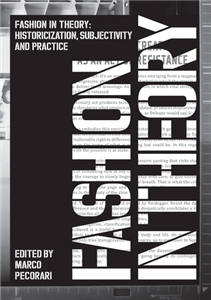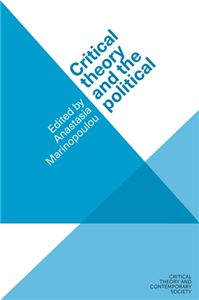Your Search Results
-
Thekla Verlag
We are a publisher from Germany with a selected list of children's and young adult books.
View Rights Portal
-
Promoted ContentHumanities & Social SciencesNovember 2021
De-centering queer theory
Communist sexuality in the flow during and after the Cold War
by Bogdan Popa, Gurminder Bhambra
De-centering queer theory seeks to reorient queer theory to a different conception of bodies and sexuality derived from Eastern European Marxism. The book articulates a contrast between the concept of the productive body, which draws its epistemology from Soviet and avant-garde theorists, and Cold War gender, which is defined as the social construction of the body. The first part of the book concentrates on the theoretical and visual production of Eastern European Marxism, which proposed an alternative version of sexuality to that of western liberalism. In doing so it offers a historical angle to understand the emergence not only of an alternative epistemology, but also of queer theory's vocabulary. The second part of the book provides a Marxist, anti-capitalist archive for queer studies, which often neglects to engage critically with its liberal and Cold War underpinnings.
-
Promoted ContentHumanities & Social SciencesNovember 2020
Non-Western responses to terrorism
by Michael J. Boyle
This edited collection surveys how non-Western states have responded to the threats of domestic and international terrorism in ways consistent with and reflective of their broad historical, political, cultural and religious traditions. It presents a series of eighteen case studies of counterterrorism theory and practice in the non-Western world, including countries such as China, Japan, India, Pakistan, Egypt and Brazil. These case studies, written by country experts and drawing on original language sources, demonstrate the diversity of counter-terrorism theory and practice and illustrate how the world 'sees' and responds to terrorism is different from the way that the United States, the United Kingdom and many European governments do. This volume - the first ever comprehensive account of counter-terrorism in the non-Western world - will be of interest to students, scholars, students and policymakers responsible for developing counter-terrorism policy.
-
 Trusted Partner
Business, Economics & LawJune 2026
Trusted Partner
Business, Economics & LawJune 2026Histories of international legal theories in Japan
From dialogue to conversation
by Maiko Meguro, Yota Negishi
This volume presents the first systematic account of Japanese international legal theory; edited by Japanese scholars, the volume traces thirteen influential scholars and spans over a century. It examines how theorists positioned outside international law's Western centre developed sophisticated frameworks to address tensions between Western modernity and their own experiences. The book's central contribution proposes 'conversation'-continuous engagement that respects differences between legal traditions-as an alternative to 'dialogue', which often reproduces existing hierarchies by assuming all perspectives can be reconciled. Through detailed intellectual biographies across six historical periods, contributors reveal how Japanese scholars strategically employed legal positivism, articulated transcivilizational perspectives, and developed concepts of normative multilateralism. Addressed at scholars of international law, legal theory, and comparative legal traditions, this volume demonstrates that the discipline's future requires genuinely reciprocal exchange where diverse perspectives can coexist productively.
-
 Trusted Partner
Literature & Literary StudiesMarch 2017
Trusted Partner
Literature & Literary StudiesMarch 2017Asia in Western fiction
by Robin Winks
Any reader who has ever visited Asia knows that the great bulk of Western-language fiction about Asian cultures turns on stereotypes. This book, a collection of essays, explores the problem of entering Asian societies through Western fiction, since this is the major port of entry for most school children, university students and most adults. In the thirteenth century, serious attempts were made to understand Asian literature for its own sake. Hau Kioou Choaan, a typical Chinese novel, was quite different from the wild and magical pseudo-Oriental tales. European perceptions of the Muslim world are centuries old, originating in medieval Christendom's encounter with Islam in the age of the Crusades. There is explicit and sustained criticism of medieval mores and values in Scott's novels set in the Middle Ages, and this is to be true of much English-language historical fiction of the nineteenth and early twentieth centuries. Even mediocre novels take on momentary importance because of the pervasive power of India. The awesome, remote and inaccessible Himalayas inevitably became for Western writers an idealised setting for novels of magic, romance and high adventure, and for travellers' tales that read like fiction. Chinese fictions flourish in many guises. Most contemporary Hong Kong fiction reinforced corrupt mandarins, barbaric punishments and heathens. Of the novels about Japan published after 1945, two may serve to frame a discussion of Japanese behaviour as it could be observed (or imagined) by prisoners of war: Black Fountains and Three Bamboos.
-
 Trusted Partner
Humanities & Social SciencesApril 2026
Trusted Partner
Humanities & Social SciencesApril 2026A Confucian theory of power
by Sungmoon Kim
In the book's lead essay, Sungmoon Kim offers a comprehensive analysis of Confucian power. Through a blend of philosophical, political, and historical analysis, Kim challenges the dominant idea that Confucianism is primarily centred on virtue ethics. Instead, he argues that Confucianism perceives power through the prism of responsibility. Kim not only traces this perspective throughout history but also demonstrates its relevance to contemporary society. He contrasts this Confucian perspective with Western political theory's view of power as control. Political theorists and philosophers will offer essay responses to Sungmoon Kim's provocation, offering a dialogue approach to provide a comprehensive analysis of the Confucian conception of power.
-
 Trusted Partner
Trusted Partner
-
 Trusted Partner
Humanities & Social SciencesJune 2011
Trusted Partner
Humanities & Social SciencesJune 2011The Europeanisation of the Western Balkans
EU justice and home affairs in Croatia and Macedonia
by Florian Trauner, Emil Kirchner, Thomas Christiansen
This book deals with the scope and nature of the EU's external influence over South-Eastern Europe in the present enlargement. By elaborating on the Europeanisation of the Western Balkans in a systematic, theory-oriented and comparative way, the book provides rich insight into the dynamics of the current enlargement and offers a comprehensive analysis of the EU's avenues of external leverage in the field of justice and home affairs, a key sector of cooperation in the EU-Western Balkans relations. The book is an important contribution towards a better understanding of how the EU's use of pre-accession conditionality has changed since the Eastern enlargement. It will be of interest to decision-makers, officials and academics concerned with adaptation and transformation processes in South-Eastern Europe and the possibilities and limitations of the EU's influence in the outside world. ;
-
 Trusted Partner
The ArtsJune 2021
Trusted Partner
The ArtsJune 2021Lukácsian film theory and cinema
A study of Georg Lukács' writing on film 1913–1971
by Ian Aitken
Lukácsian film theory and cinema explores Georg Lukács' writings on film. The Hungarian Marxist critic Georg Lukács is primarily known as a literary theorist, but he also wrote extensively on the cinema. These writings have remained little known in the English-speaking world because the great majority of them have never actually been translated into English - until now. Aitken has gathered together the most important essays and the translations appear here, often for the first time. This book thus makes a decisive contribution to understandings of Lukács within the field of film studies, and, in doing so, also challenges many existing preconceptions concerning his theoretical position. For example, whilst Lukács' literary theory is well known for its repudiation of naturalism, in his writings on film Lukács appears to advance a theory and practice of film that can best be described as naturalist. Lukácsian film theory and cinema is divided into two parts. In part one, Lukács' writings on film are explored, and placed within relevant historical and intellectual contexts, whilst part two consists of the essays themselves. This book will be of considerable interest to scholars and students working within the fields of film studies, literary studies, intellectual history, media and cultural studies. It is also intended to be the final volume in a trilogy of works on cinematic realism, which includes the author's earlier European film theory and cinema (2001), and Realist film theory and cinema (2006).
-
 Trusted Partner
Literature & Literary StudiesAugust 2024
Trusted Partner
Literature & Literary StudiesAugust 2024Instead of modernity
The Western canon and the incorporation of the Hispanic (c. 1850–75)
by Andrew Ginger
Instead of modernity goes to the very heart of comparative cultural study: the question of what happens when intimate, dynamic connections are made over place and time, what it is to feel at home amid the lavish diversity of culture. This ambitious interdisciplinary book reconsiders foundational figures of the modern western canon, from Darwin to Cameron, Baudelaire to Whistler. It weaves together brain images from France, preserved insects from the Americas, glass in London, poetry from Argentina, paintings from Spain. Flaubert, Whitman, and Nietzsche find themselves with Hostos from Puerto Rico and Gorriti from Argentina. The book ranges over theoretical fields: trauma and sexuality studies, theories of visuality, the philosophy of sacrifice and intimacy, the thought of Wittgenstein. Instead of modernity is an adventure in the practice of comparative writing: resonances join suggestively over place and time, the textures of words, phrases and images combine to form moods.
-
 Trusted Partner
Humanities & Social SciencesFebruary 2013
Trusted Partner
Humanities & Social SciencesFebruary 2013The Jews in western Europe, 1400–1600
by Translated and Edited by John Edwards
As European politics, society, economy and religion underwent epoch-making changes between 1400 and 1600, the treatment of Europe's Jews by the non-Jewish majority was, then as in later periods, a symptom of social problems and tensions in the Continent as a whole. Through a broad-ranging collection of documents, John Edwards sets out to present a vivid picture of the Jewish presence in European life during this vital and turbulent period. Subjects covered include the Jews' own economic presence and culture, social relations between Jews and Christians, the policies and actions of Christian authorities in Church and State. He also draws upon original source material to convey ordinary people's prejudices about Jews, including myths about Jewish 'devilishness', money-grabbing, and 'ritual murder' of Christian children. Full introductory and explanatory material makes accessible the historical context of the subject and highlights the insights offered by the documents as well as the pitfalls to be avoided in this area of historical enquiry. This volume aims to provide a coherent working collection of texts for lecturers, teachers and students who wish to understand the experience of Jewish Europeans in this period. ;
-
 Trusted Partner
Humanities & Social SciencesJanuary 2013
Trusted Partner
Humanities & Social SciencesJanuary 2013The Jews in western Europe, 1400–1600
by John Edwards
As European politics, society, economy and religion underwent epoch-making changes between 1400 and 1600, the treatment of Europe's Jews by the non-Jewish majority was, then as in later periods, a symptom of social problems and tensions in the Continent as a whole. Through a broad-ranging collection of documents, John Edwards sets out to present a vivid picture of the Jewish presence in European life during this vital and turbulent period. Subjects covered include the Jews' own economic presence and culture, social relations between Jews and Christians, the policies and actions of Christian authorities in Church and State. He also draws upon original source material to convey ordinary people's prejudices about Jews, including myths about Jewish 'devilishness', money-grabbing, and 'ritual murder' of Christian children. Full introductory and explanatory material makes accessible the historical context of the subject and highlights the insights offered by the documents as well as the pitfalls to be avoided in this area of historical enquiry. This volume aims to provide a coherent working collection of texts for lecturers, teachers and students who wish to understand the experience of Jewish Europeans in this period.
-
 Trusted Partner
Literature & Literary StudiesJune 2022
Trusted Partner
Literature & Literary StudiesJune 2022Critical theory and dystopia
by Patricia McManus, Darrow Schecter
Critical theory and dystopia offers a uniquely rich study of dystopian fiction, drawing on the insights of critical theory. Asking what ideological work these dark imaginings perform, the book reconstructs the historical emergence, consolidation and transformation of the genre across the twentieth century and into our own, ranging from Yevgeny Zamayatin's We (1924) and Aldous Huxley's Brave New World (1932) to Anthony Burgess's A Clockwork Orange (1963) and Suzanne Collins's Hunger Games series (2000s and 2010s). In doing so, it reveals the political logics opened up or neutered by the successive moments of this dystopian history.
-
 Trusted Partner
The ArtsOctober 2025
Trusted Partner
The ArtsOctober 2025Fashion in theory
Historicization, subjectivity and practice
by Marco Pecorari
For Spring Summer 2020, Gucci showed a collection questioning identity politics and capitalism. Rather than the usual explanation of the material, shapes or inspirations behind the collection, the press release handed out at the show quoted the philosopher Michel Foucault and questioned the very nature of fashion itself. Gucci's press release reflects the popularization of critical theory in public discourse and fashion in particular. Philosophers, activists and academics are increasingly recruited to collaborate with luxury brands, and main-stream fashion brands have begun to adopt a discourse about politics and critical thinking using, in their communication, concepts such as "resistance", "gender fluidity", "national identity" or "cultural heritage" without accompanying these discourses with any form of political engagement or activism. Based on this intellectualization of the fashion industry and the recent proliferation of critical theory in fashion education, this book stresses the importance of rethinking the relationship between fashion and theory. Drawing together eleven chapters and four conversations by and with philosophers, cultural theorists, historians, anthropologists, activists, performers and designers, the book investigates both the theorization of fashion and the ways in which fashion offers a useful landscape in understanding the current state of critical theory today.
-
 Trusted Partner
Humanities & Social SciencesAugust 2023
Trusted Partner
Humanities & Social SciencesAugust 2023Picturing the Western Front
Photography, practices and experiences in First World War France
by Beatriz Pichel
Between 1914 and 1918, military, press and amateur photographers produced thousands of pictures. Either classified in military archives specially created with this purpose in 1915, collected in personal albums or circulated in illustrated magazines, photographs were supposed to tell the story of the war. Picturing the Western Front argues that photographic practices also shaped combatants and civilians' war experiences. Doing photography (taking pictures, posing for them, exhibiting, cataloguing and looking at them) allowed combatants and civilians to make sense of what they were living through. Photography mattered because it enabled combatants and civilians to record events, establish or reinforce bonds with one another, represent bodies, place people and events in imaginative geographies and making things visible, while making others, such as suicide, invisible. Photographic practices became, thus, frames of experience.
-
 Trusted Partner
The ArtsJanuary 2019
Trusted Partner
The ArtsJanuary 2019Realist film theory and cinema
The nineteenth-century Lukácsian and intuitionist realist traditions
by Ian Aitken
'Realist film theory and cinema' embraces studies of cinematic realism and 19th century tradition, the realist film theories of Lukács, Grierson, Bazin and Kracauer, and the relationship of realist film theory to the general field of film theory and philosophy. This is the first book to attempt a rigorous and systematic application of realist film theory to the analysis of particular films. The book suggests new ways forward for a new series of studies in cinematic realism, and for a new form of film theory based on realism. It stresses the importance of the question of realism both in film studies and in contemporary life. Aitken's work will be of interest to scholars and advanced students of film studies, literary studies, media studies, cultural studies and philosophy.
-
 Trusted Partner
Humanities & Social SciencesMay 2026
Trusted Partner
Humanities & Social SciencesMay 2026Critical theory and the political
by Anastasia Marinopoulou
The book addresses what is political in critical theory and which aspects, arguments or notions of critical theory maintain political significance for the 20th and the 21st centuries. The collection of essays comprises itself of a series of clear and critical perspectives that analyze the extent to which critical theory relates political argument to modern societies and, thereby, exerts a critique of the multiple social and political phenomena of late modernity. The contributors focus on a multiplicity of universal phenomena such as globalization, multiple crises, late capitalism and the social role of the sciences, and posit some novel criticism of the contemporary social sphere, as it is situated within the wider system of global capitalism. They also present a plurivalent critique that links arguments in Marxism and Freud to all three generations of critical theory.
-
 Trusted Partner
Humanities & Social SciencesJuly 2005
Trusted Partner
Humanities & Social SciencesJuly 2005The extreme Right in Western Europe
Success or failure?
by Elisabeth Carter
Parties of the extreme Right have experienced a dramatic rise in electoral support in many countries in Western Europe over the last two and a half decades. This phenomenon has been far from uniform, however, and the considerable attention that the more successful Right-wing extremist parties have received has sometimes obscured the fact that these parties have not recorded high electoral results in all West European democracies. Furthermore, their electoral scores have also varied over time, with the same party recording low electoral scores in one election but securing high electoral scores in another. This book examines the reasons behind the variation in the electoral fortunes of the West European parties of the extreme Right in the period since the late 1970s. It proposes a number of different explanations as to why certain parties of the extreme Right have performed better than others at the polls and it investigates each of these different explanations systematically and in depth. ;
-
 Trusted Partner
The ArtsFebruary 2006
Trusted Partner
The ArtsFebruary 2006Film theory
An introduction
by Robert Lapsley
Film theory: an introduction offers a highly readable account of film theory and is an indispensable resource for students. The discussion ranges from the late 1960s to the present, a period in which a number of conceptual strands, notably politics, semiotics and psychoanalysis were woven together in an ambitious synthesis. In this book, the authors chart the construction of this synthesis and its subsequent fragmentation, and clearly explain the various intellectual currents which have contributed to it. Divided into two parts, the first covers the conceptual background of film theory, dealing with historical materialism, semiotics and psychoanalysis, whilst in the second the authors concentrate on particular topics such as authorship, narrative, realism, the avant-garde and postmodernism. For this new edition, the authors have added a new foreword, a fully updated and expanded bibliography, and a 60-page Retrospect outlining developments within film theory since the book's original publication in 1988. This Retrospect identifies a number of broad readings of Theory, each with a different perspective on the main content of the book. As such, it provides a new and original mapping of the 'post-theory' moment in this complex and often fractured terrain. Accessible and authoritative, this book is essential reading for students of film theory, or indeed anyone seeking a deeper understanding of modern cinema. ;
-
 Trusted Partner
Humanities & Social SciencesJuly 2021
Trusted Partner
Humanities & Social SciencesJuly 2021Critical theory and feeling
The affective politics of the early Frankfurt School
by Simon Mussell
This book offers a unique and timely reading of the early Frankfurt School in response to the recent 'affective turn' within the arts and humanities. Resisting the overly rationalist tendencies of political philosophy, it argues that critical theory actively cultivates a powerful connection between thinking and feeling, and rediscovers a range of often neglected concepts that were of vital importance to the first generation of critical theorists, including melancholia, hope, (un)happiness, objects and mimesis. In doing so, it brings the dynamic work of Walter Benjamin, Theodor Adorno, Ernst Bloch and Siegfried Kracauer into conversation with more recent debates around politics and affect. An important intervention in the fields of affect studies and social and political thought, Critical theory and feeling shows that sensuous experience is at the heart of the Frankfurt School's affective politics.
-
 Trusted Partner
Humanities & Social SciencesSeptember 2017
Trusted Partner
Humanities & Social SciencesSeptember 2017The future of western capitalism?
by Alberta Andreotti, David Benassi, Yuri Kazepov






